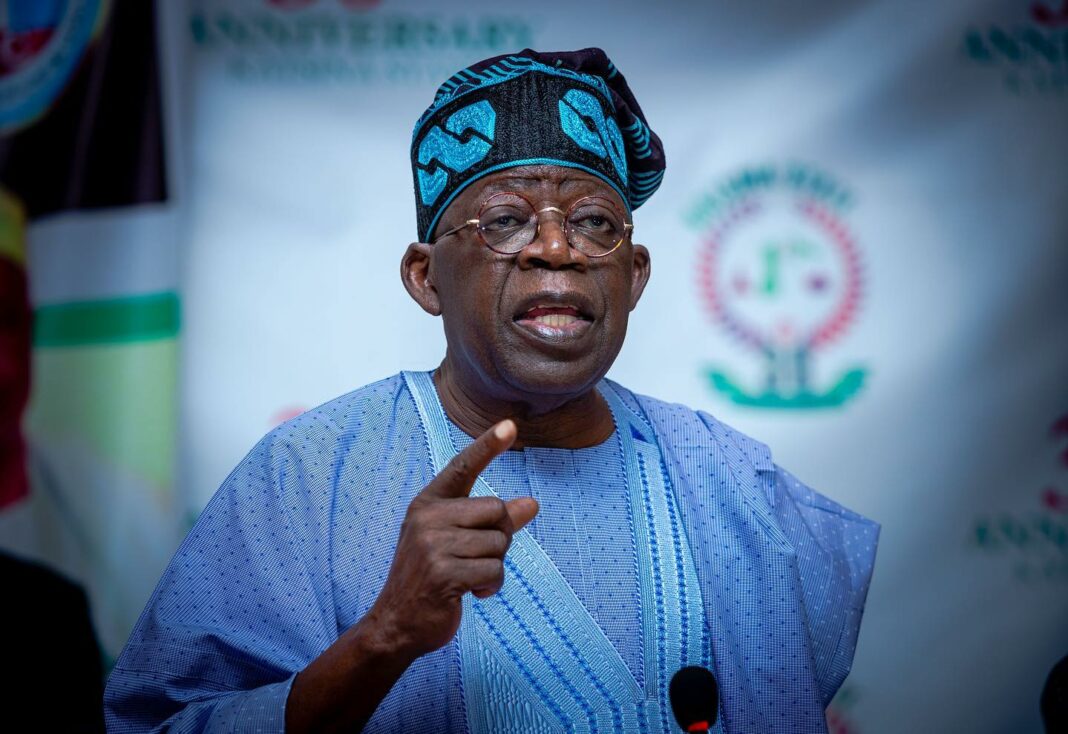ABUJA, Nigeria — The Presidency has clarified that President Bola Tinubu’s sweeping replacement of Nigeria’s service chiefs was not linked to any alleged coup attempt but was a deliberate effort to “inject new direction” into the armed forces.
The explanation followed widespread speculation after Tinubu announced on Friday the appointment of new military leaders, including General Olufemi Oluyede as Chief of Defence Staff, replacing General Christopher Musa.
Other appointments include Major-General W. Shaibu as Chief of Army Staff, Air Vice Marshal S.K. Aneke as Chief of Air Staff, and Rear Admiral I. Abbas as Chief of Naval Staff.
Major-General E.A.P. Undiendeye retains his role as Chief of Defence Intelligence.
In a statement issued by the Special Adviser to the President on Media and Public Communication, Sunday Dare, the changes were described as part of a broader effort to strengthen coordination and professionalism within the armed forces.
The announcement came days after an online publication, Sahara Reporters, claimed that 16 military officers had been detained over an alleged coup plot.
The report also suggested that the cancellation of the Independence Day military parade was part of an effort to quell internal unrest.
However, the Defence Headquarters dismissed the claims as “false and intended to cause unnecessary tension and distrust among the populace.”
Brigadier General Tukur Gusau, Director of Defence Information, said the cancellation of the parade was purely administrative and unrelated to any plot.
“The detained officers are being investigated for issues of indiscipline,” he said, emphasising that the armed forces remain loyal to the Constitution and the President.
Speaking to Saturday PUNCH, Presidential aides Bayo Onanuga and Tope Ajayi said Tinubu’s decision was purely administrative and within his constitutional powers.
“Service chiefs can be hired and fired by the President. He is the Commander-in-Chief. He has the power to hire and fire,” Onanuga said.
Ajayi added that the move followed two years of continuous service by the outgoing chiefs and reflected Tinubu’s intent to inject “new vision, vigour, and energy” into military operations.
“This is not a reaction to any rumour of coups. He is exercising his powers. The service chiefs have done two years,” Ajayi explained.
He also noted that persistent security challenges — from terrorism and banditry to separatist agitations and kidnapping — required new leadership perspectives.
“In the last 15 years, look at our national budget — security taking the largest chunk,” Ajayi said.
“The President wants to deal with this matter once and for all, so that the money going into defence expenditure will be better deployed to fund critical infrastructure like power, roads, broadband, education, and healthcare.”
Despite official denials, public speculation continues to swirl online, with many Nigerians drawing links between the shake-up and the alleged coup rumours.
On social media platform X, users questioned the timing of the announcement.
One user wrote, “There were rumours of a military coup last week, and today some of the service chiefs were sacked. That rumour was debunked, but it seems to be true right now from the sack of service chiefs.”
The African Democratic Congress (ADC) urged the Federal Government to provide a “categorical explanation” for the reshuffle.
In a statement signed by its National Publicity Secretary, Bolaji Abdullahi, the party said the overhaul had “serious and far-reaching implications for stability within the ranks” and risked fuelling conspiracy theories.
Security experts also offered mixed reactions.
Colonel Yomi Dare (retd) described the change as a morale booster, saying, “The new service chiefs must now be motivated to work effectively and learn from what their predecessors did and failed to do.”
Former Department of State Services director Mike Ejiofor said leadership changes would have little effect without proper funding.
“Changing the service chiefs might not necessarily change anything because they have all been working under very difficult situations,” he said.
Security analyst Akogun-Abudu Oluwamayowa argued that Nigeria’s insecurity problems required deeper structural reforms, not just leadership changes.
“One of the problems we are facing is that we do not have perimeter fencing. People from other countries come into our country without barriers, wreaking havoc. The change may not be effective when major issues are not tackled,” he said.
As the new service chiefs assume office, expectations are high that the shake-up will reinvigorate military operations, restore public confidence, and deliver measurable progress against the multiple security challenges facing the nation.







